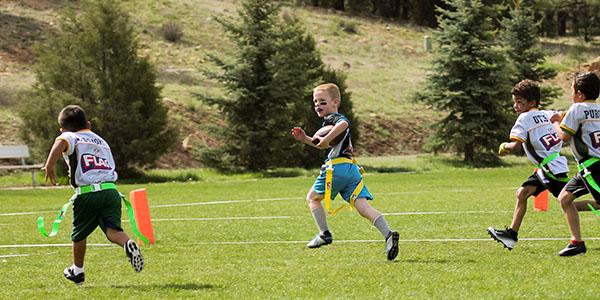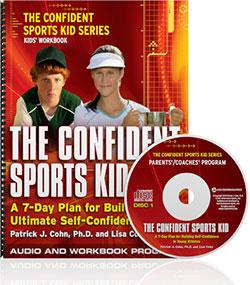
How to be a Sports Parent as a Former Athlete
You’re a sports parent with loads of experience as an athlete. Maybe you were an Olympian, or a Div. 1 basketball player. Maybe you just loved playing sports as a kid, and played three sports between the ages of 5 and 21.
Now that your kids are playing sports, you’ve got loads of ideas about how to ensure they perform well, enjoy their experience, and reap life lessons from sports. It may be hard to contain all these ideas while your kids are practicing or playing.
Your experience can be helpful to your kids’ teams–or it can be a liability.
If you yell on the sidelines, disagree with your kids’ coaches, badmouth the coaches and refs, and constantly coach your child at home, you’re likely not using your experience wisely.
But if you embrace tact, empathy and sportsmanship and understand what builds sports kids’ confidence, you’ll be a great asset to your team.
First of all, you need to understand that sports kids worry a lot about what others think of them. They often say that the Number One thing that embarrasses them is their parents yelling on the sidelines. This distracts them and hurts their confidence. If they’re thinking about you yelling on the sidelines, they can’t concentrate on playing well.
Second, try to understand how kids feel if you disagree with their coaches and criticize their coaching. Especially young kids will feel confused. Who should they listen to? The parents they love so dearly? Or the coach who is in charge of the team? Often sports kids really look up to their coaches and feel torn if their parents criticize them.
As experienced or knowledgeable parents, you need to be as positive and supportive as possible. Begin by introducing yourself to the coach and explain your experience. Do this tactfully and gently. You don’t want to brag; you want to offer your assistance.
Be sure to approach the coach when he or she appears to be free to talk–not during a game or practice.
For example, you might say, “Hey coach, I played soccer for 10 years as a kid. I just love the sport, and I want to help out as much as I can. Are there any ways I can help you out?”
Avoid bombarding the coach with ideas and advice. Look for ways the coach may need some help. For example, does he or she need an extra hand doing certain drills in practice? Offer to help. Does he or she need someone to keep score during games? Offer to do this. Be clear that you want to help the whole team–not just your own child.
You need to earn the coach’s trust before he or she will start inviting you to help in other ways. Once it’s clear you really want to help–and not just show off or give advice–the coach will likely start turning to you for advice.
In the meantime, be a great sports parent. Be positive. Don’t coach your child or the other children from the sidelines. Cheer for all the kids on the team–and be sure to compliment the other team’s players when they deserve it. Read up on how to improve kids’ mental games, and share this information. Help build a culture of sportsmanship and teamwork on your kids’ teams.
If you keep your sports kids’ best interests in mind at all times–and understand what boosts their confidence in sports–you’ll contribute in ways that your kids will appreciate for years to come.
Related Sports Psychology Articles
- Athletes Who Don’t Improve with Lessons
- How Choking Hurts Athletes’ Performance
- Self-Criticism In Youth Athletes
*Subscribe to The Ultimate Sports Parent Podcast
*Subscribe to Peak Performance Sports on Youtube
Download a free sports psychology report to improve your mental game!
The Confident Sports Kid

When kids lack confidence, they doubt themselves, stop taking risks, play tentatively, and are hard on themselves. As a result, kids often lose their motivation to improve. Ultimately, these barriers keep them from enjoying sports and making the most of their physical talent.
“The Confident Sports Kid” program is actually two programs: one that teaches sports parents how to boost their kids’ confidence, and another that teaches young athletes age 8 to 18 how to improve their self talk, avoid negative thinking, overcome expectations that limit confidence, and much more. The program will help kids boost their confidence in sports and life…and enjoy sports more.
